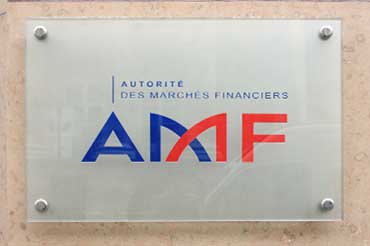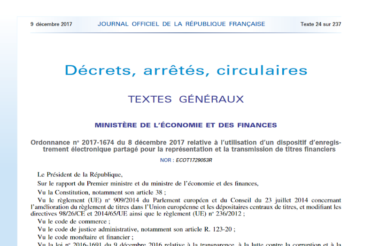The Court of Justice of the European Union has ruled for the first time on bitcoin!
In a landmark ruling of 22 October 2015, the Court declares that I) the provision of bitcoin exchanges for traditional currency is a supply of services activity and II) such transactions are exempt from value added tax (VAT).
This judgment was given in response to two preliminary questions from the Swedish Supreme Administrative Court. This Court was seized of a dispute under domestic law between Mr Hedqvist and the tax authorities, which considered that transactions involving the exchange of traditional currencies for the virtual currency "bitcoin" could not benefit from an exemption and were therefore subject to VAT.
The Court of Justice replied that "the two-way flow virtual currency 'bitcoin' (...) cannot be classified as 'tangible property' within the meaning of Article 14 of the VAT Directive since (...) that virtual currency has no purpose other than that of a means of payment. The same applies to traditional currencies, since they are legal tender."
The High Court concluded that in "these conditions, these transactions constitute supplies of services" and that insofar as they are "carried out in return for consideration which has a direct link with the service rendered", they should be considered as "supplies of services for consideration" within the meaning of the Directive [According to a general principle, VAT is levied on each supply of services made for consideration by a taxable person].
After recalling that the cases of exemption from VAT [for example, currency exchanges] are to be interpreted strictly, the Court found that "Since the virtual currency 'bitcoin' is a contractual means of payment, it cannot, on the one hand, be regarded either as a current account or as a deposit of funds, a payment or a transfer. On the other hand, unlike receivables, cheques and other commercial instruments (...), it constitutes a means of direct settlement between the operators who accept it."
The Court states that "transactions involving non-traditional currencies, i.e. currencies other than those which are legal means of payment in one or more countries, provided that those currencies have been accepted by the parties to a transaction as an alternative means of payment to the legal means of payment and do not have a purpose other than that of a means of payment, constitute financial transactions."
Noting that in the present case, "the virtual currency 'bitcoin' has no purpose other than that of a means of payment and is accepted for that purpose by certain operators", the Court concluded that the exchange of bitcoins for a legal tender could benefit from the exemptions provided for by the directive as a financial transaction.
As bitcoin.co.uk noted on 17 October, this pro-bitcoin ruling by the Court of Justice was expected as the Advocate General's conclusions were also in favour of an exemption for bitcoin.
However, what does this decision mean for the bitcoin community? Does this ruling simply decide a particular case or does it have a broader impact? Can it be invoked before a national court?
This ruling is extremely important because, on the one hand, it provides an answer to a specific case (in this case the application of EU law to Swedish law) and, on the other hand, it sets the case law on this issue at the level of the 28 EU Member States.
The Swedish Court is bound by the interpretation given by the Court of Justice, as are all the national courts of the 28 EU Member States that are seized of the same dispute. Any person will therefore be able to invoke this ruling before a national court.
This decision is a real relief for all companies working in the field of bitcoin in Europe. Indeed, subjecting bitcoin to VAT would have increased transfer costs considerably, causing bitcoin to lose one of its main advantages (its low exchange costs) and could even have led to the closure of companies in the sector.
In a European Union where the 28 member states differ in their regulatory understanding of bitcoin, this decision is a significant first step towards harmonization in favour of bitcoin!
Sources : ec.europa.eu – curia.europa.eu – Video of the decision.
This article was first published on: www.bitcoin.fr
The picture, European Court of Justice - Luxembourg by Cédric Puisney is authorised for use under CC BY 2.0






